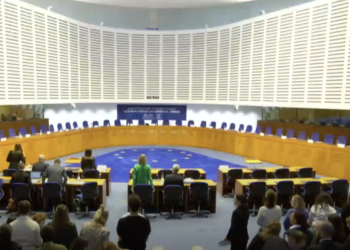On 1 July 2021, the European Court of Human Rights published its long-awaited ruling about Yasser Arafat’s death.
Arafat, a long-time Palestinian leader, died on 11 November 2004 in France at the Percy Military Hospital where he was being treated. Suha El Kodwa Arafat and Zahwa El Kodwa Arafat, Arafat’s wife and daughter sued the hospital and French authorities, convinced that Arafat had been the victim of premeditated murder, possibly by poisoning. In French courts, Arafat’s wife and daughter were unsuccessful with their lawsuits and appeals. In 2017, they appealed to the European Court of Human Rights. In their appeal to the Strasbourg-based courts, they argued that French courts did not provide them with a fair hearing. Courts in France refused to exclude from evidence expert reports on the cause of the decline in Mr Arafat!s health, which were contradicted by Swiss experts’ opinion. They also believed that some other French courts’ actions amounted to unfair proceedings. French courts refused to order additional expert reports to clear out other contradictions between the results obtained by the different Swiss and French experts.
Two days before the Court published its decision, the NewsECHR Twitter profile, which has in the past published several Court’s documents before the Court published them, announced that it knew the Court’s decision in the Arafat case. The News ECHR exclusively shared the information with Westminster Confidential, a blog by prominent British journalist David Hencke, that the Court would reject the Arafat wife’s and daughter’s application as inadmissible, without a possibility of further appeal. Hencke published a story ahead of the decision. The News ECHR proved itself again as the source that has published the Strasbourg court’s files and documents, including high-profile applications before the Court did. In April 2021, it published Caster Semenya’s appeal 24 hours before the Court publicly communicated the case.






